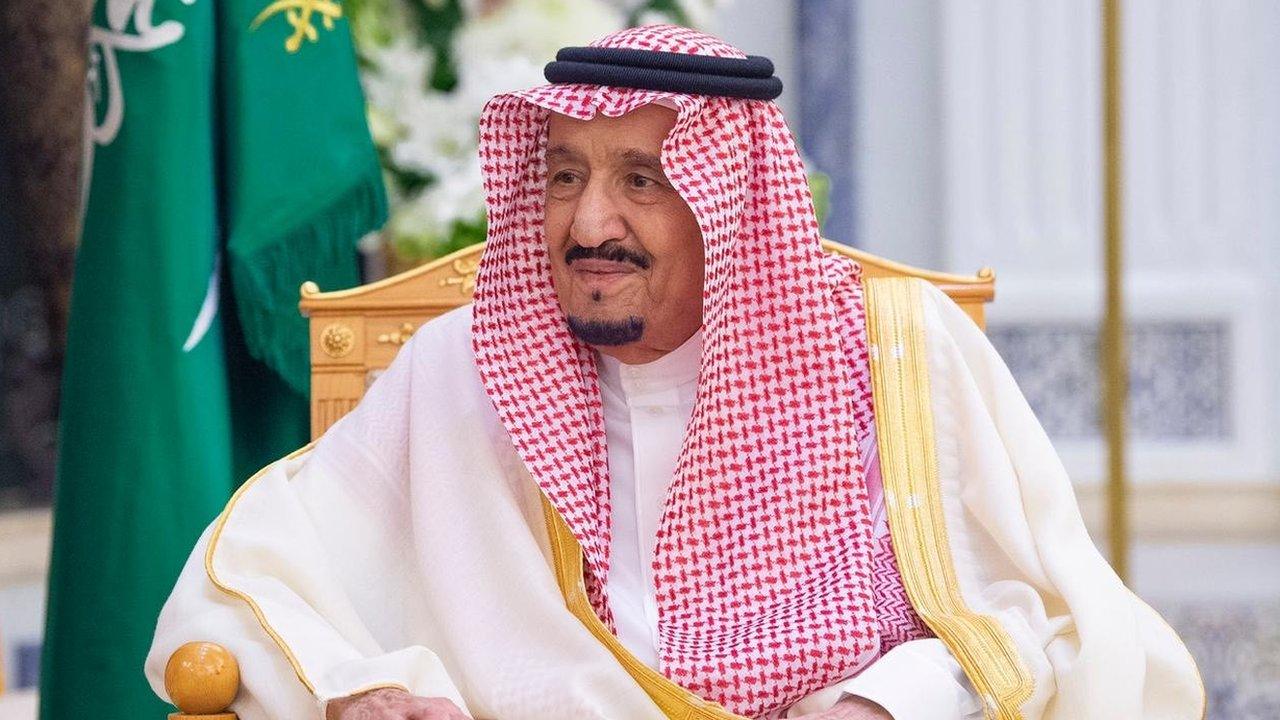Saudi king faces changing landscape
- Published
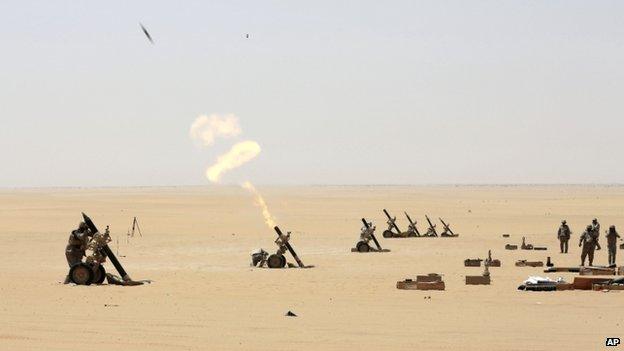
King Salman has launched air strikes in Yemen
Just 100 days into his reign Saudi Arabia's new king has already launched air strikes in Yemen, promoted some conservatives, given away an estimated $32bn (£21bn) to his people and set his son on the path to the throne.
King Salman's decisive start, including the major cabinet reshuffle - which named his nephew, the powerful Interior Minister Prince Mohammed bin Nayef, as crown prince, and his son, Prince Mohammed bin Salman, as deputy crown prince - marks a clear break with the deliberate caution of his predecessor, King Abdullah.
For a system used to gradual movement and elite consensus, King Salman is showing there is another way of conducting Saudi politics. And his early moves suggest he sees the need to confront not only a regional challenge from Iran but also political pressures at home.
In some respects, the demands for change in Saudi Arabia are more muted than they used to be. Having tried, and failed, to overthrow the existing order in Saudi Arabia, al-Qaeda is now far weaker in the country than it was a decade ago when it was able to mount regular, deadly attacks.
At the other end of the political spectrum, the liberals are also on the back foot. Having seen what the Arab Spring brought to Syria, Libya and Egypt, pro-democracy Saudis have concluded that what they see as corrupt, unaccountable royal rule is better than what might follow its collapse.
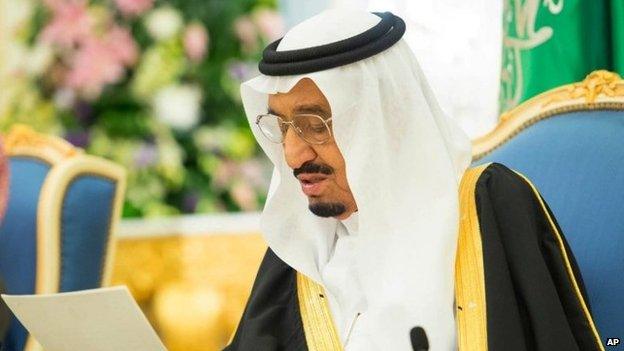
King Salman is the latest ruler from the House of Saud
Relationship tensions
But for all the media coverage they attract, both al-Qaeda and the liberals can be seen as minority groups with limited support in Saudi society. The essential source of national stability is the understanding between the House of Saud and Wahhabi clerics.
There are tensions in the relationship. Many Wahhabis now view the royals with some disdain, seeing them as corrupted and secularised rulers with too close a relationship to the West.
In the past, the clerics were appeased by being allowed to spread their version of Islam abroad as long as they did not cause trouble at home. But with the growth of al-Qaeda and the so-called Islamic State the Saudi royals, and many in the population, are increasingly worried by the policy of exporting jihad.
In the 1980s, when many Saudis saw TV pictures of young compatriots wielding Kalashnikovs in Afghanistan they thought of them as heroes. Today when they see the same happening closer to home in Syria and Iraq they worry, wondering how long it will be before the jihadis extend their frontline to Saudi Arabia itself.

Saudi Arabia key facts:
Ruled by King Salman bin Abdulaziz Al-Saud, who acceded to the throne on 23 January 2015 on the death of his half-brother, King Abdullah
The Al-Saud dynasty holds a monopoly of power - political parties are banned and the opposition is organised from abroad; militant Islamists have launched several deadly attacks
One of the main players in the Arab and Muslim worlds
World's largest oil exporter with 25% of proven global reserves
Population: Nearly 30 million

Economic picture
But for all the religious and ideological issues, the mainstream is most worried about the same thing that concerns people all over the world: the economy.
With a massive $700bn of foreign reserves it might seem as if the royals can easily afford to overcome any foreseeable political crises by extending financial largesse.
But the figures are not as rosy as they initially seem. When King Abdullah wanted to forestall Arab Spring-style protests spreading to Saudi Arabia he handed out no less than $130bn.
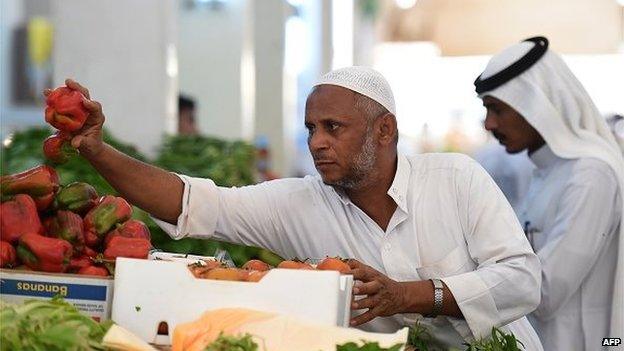
Not everyone shares in Saudi's riches, and unemployment is rising in the country
Even so, with a population of almost 30 million, most Saudis cannot expect to match the riches enjoyed by Qataris and Kuwaitis. Increasingly Saudis facing unemployment are accepting that they may have to take work as waiters rather than managers.
The state handouts depend on oil, which accounts for some 90% of Saudi government revenue. But with crude prices depressed, Riyadh is running a budget deficit of some $39bn.
There are competing views on Saudi oil. Some say a combination of sustained low prices and overestimated reserves mean Saudi Arabia needs to adjust to having less income. Others maintain that the Saudis will always be able to produce oil more cheaply than anyone else. As long as the West wants to buy oil, Saudi Arabia will be among those supplying it.
On that account, the only real threat to Saudi revenue is technological change providing an alternative to oil and gas. As Saudi Oil Minister Sheikh Yamani reportedly said in the 1970s: ''The Stone Age didn't end for lack of stone, and the oil age will end long before the world runs out of oil."
For more on this story, listen to Newshour Extra on the BBC iPlayer or download the podcast.
- Published29 April 2015
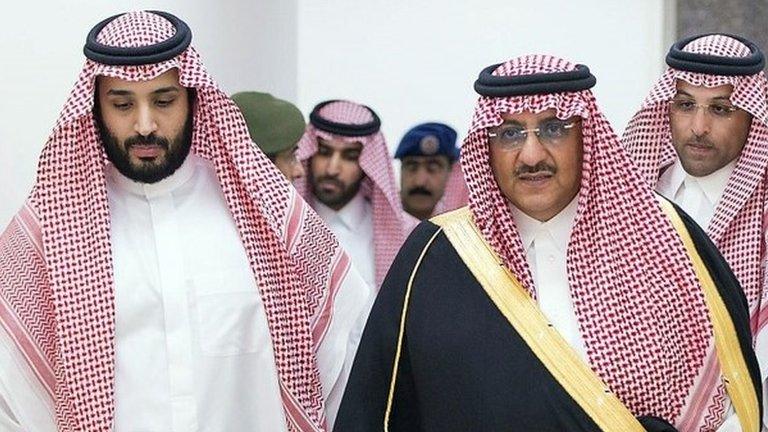
- Published29 April 2015
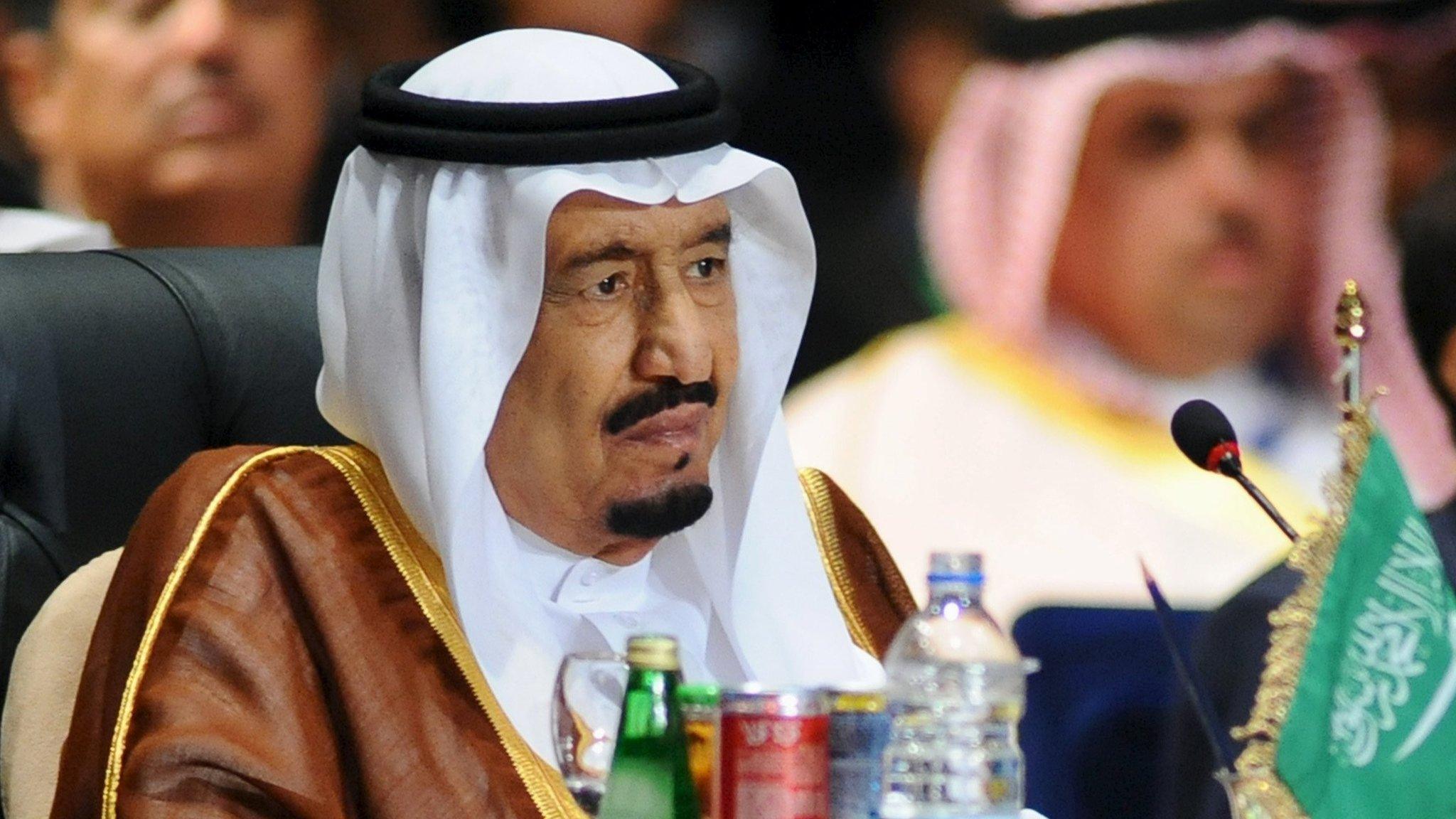
- Published10 March 2020
